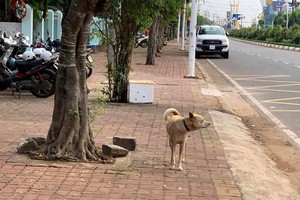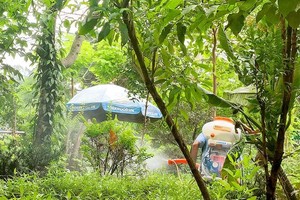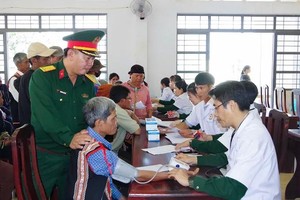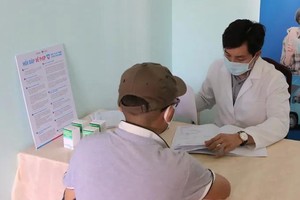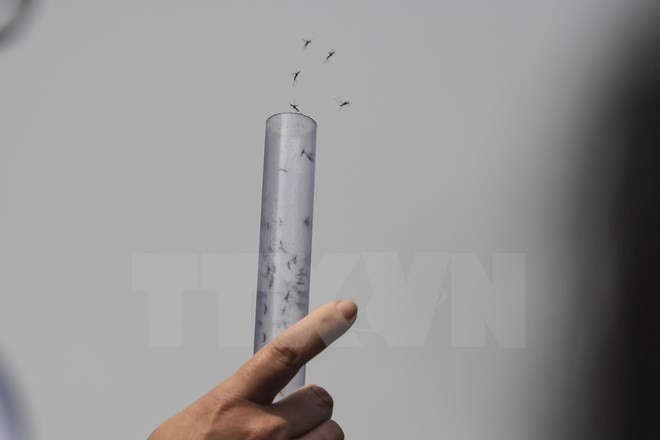
The MoH’s Preventive Medicine Department said on September 7 that representatives of the ministry and some institutes recently had a working session with Prof. Scott O’Neil from Australia’s Monash University, who leads the global Eliminate Dengue Programme, to discuss the plan.
The department said dengue fever is currently a major public health issue. It has become an epidemic nationwide with tens of thousands of infected cases every year. Notably, in 2017, dengue fever has broken out in many localities and lasted for many months with total cases much higher than the previous years, especially in Hanoi.
The disease is transmitted via Aedes aegypti mosquitoes which are present in almost all localities in the country. Dengue prevention has encountered an array of difficulties since there haven’t been any vaccines or specific medicine. The key prevention measure is to control mosquitoes.
A promising measure that has been piloted in Tri Nguyen Island, the south central province of Khanh Hoa is to infect Aedes aegypti mosquitoes with Wolbachia bacteria and then release them into the environment.
Wolbachia is a natural bacterium present in about 60 percent of insect species, including some mosquitoes. However, it is not usually found in the Aedes aegypti mosquito.
Global scientists succeeded in infecting Aedes aegypti mosquitoes with Wolbachia and proved that this bacterium can curb the growth of dengue, Zika and other viruses inside the mosquito and their transmission to human.
While female mosquitoes with Wolbachia pass this bacterium to following generations, those without Wolbachia are unable to reproduce when they mate with male mosquitoes with the bacterium. Therefore, the long-term effect of the use of Wolbachia will be maintained while the number of mosquitoes will not increase.
The Preventive Medicine Department said the research team of the National Institute of Hygiene and Epidemiology and Australian scientists successfully raised Aedes aegypti mosquitoes with Wolbachia. These mosquitoes were introduced in Tri Nguyen Island in two phases, from April to September 2013 and from May to November 2014.
Surveys in recently years showed that while the number of dengue fever cases in Khanh Hoa was very high, there hasn’t been any concentrated dengue fever hotbeds in Tri Nguyen Island since the last release in 2014. In August 2016, the MoH recognised the safety and effect of Wolbachia-infected mosquitoes and the use of these mosquitoes received support from the local community, the department noted.
The Eliminate Dengue programme in Vietnam is asking for permission to pilot the release of Wolbachia-infected mosquitoes in a small mainland area in Nha Trang city from late 2017.






